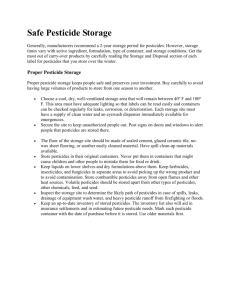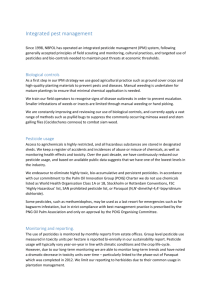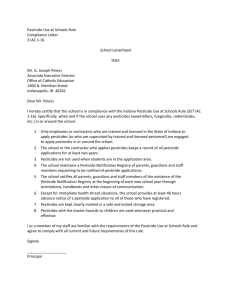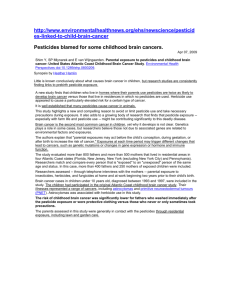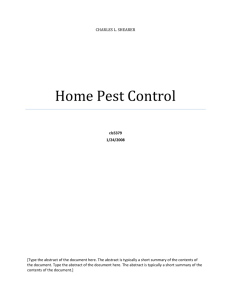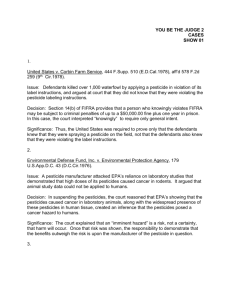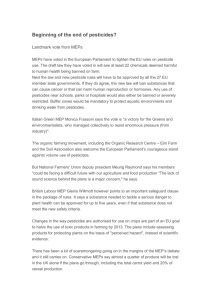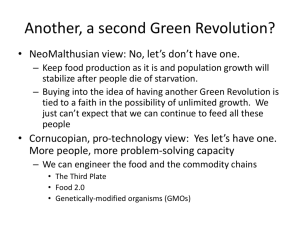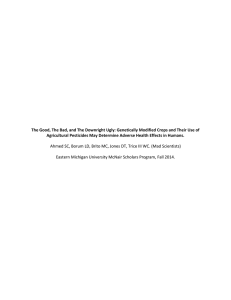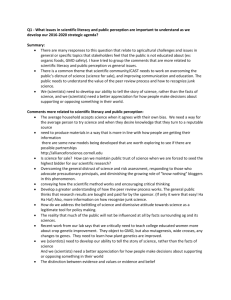Comment to CBC Morning Edition re downgrading the dangers of
advertisement
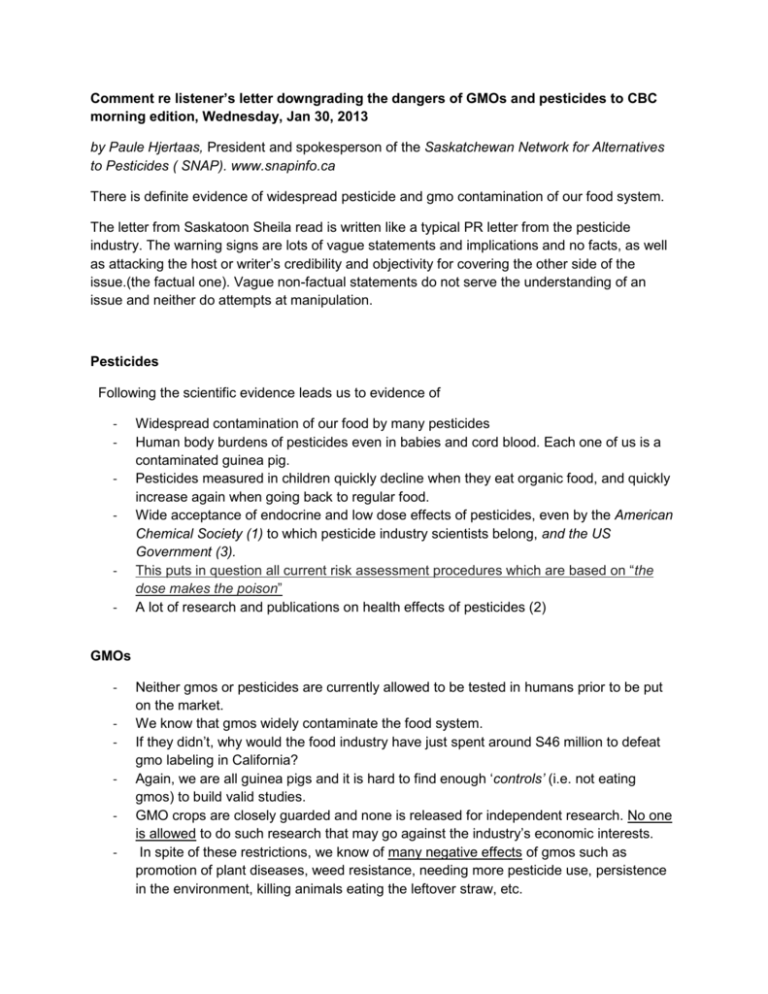
Comment re listener’s letter downgrading the dangers of GMOs and pesticides to CBC morning edition, Wednesday, Jan 30, 2013 by Paule Hjertaas, President and spokesperson of the Saskatchewan Network for Alternatives to Pesticides ( SNAP). www.snapinfo.ca There is definite evidence of widespread pesticide and gmo contamination of our food system. The letter from Saskatoon Sheila read is written like a typical PR letter from the pesticide industry. The warning signs are lots of vague statements and implications and no facts, as well as attacking the host or writer’s credibility and objectivity for covering the other side of the issue.(the factual one). Vague non-factual statements do not serve the understanding of an issue and neither do attempts at manipulation. Pesticides Following the scientific evidence leads us to evidence of - - Widespread contamination of our food by many pesticides Human body burdens of pesticides even in babies and cord blood. Each one of us is a contaminated guinea pig. Pesticides measured in children quickly decline when they eat organic food, and quickly increase again when going back to regular food. Wide acceptance of endocrine and low dose effects of pesticides, even by the American Chemical Society (1) to which pesticide industry scientists belong, and the US Government (3). This puts in question all current risk assessment procedures which are based on “the dose makes the poison” A lot of research and publications on health effects of pesticides (2) GMOs - Neither gmos or pesticides are currently allowed to be tested in humans prior to be put on the market. We know that gmos widely contaminate the food system. If they didn’t, why would the food industry have just spent around S46 million to defeat gmo labeling in California? Again, we are all guinea pigs and it is hard to find enough ‘controls’ (i.e. not eating gmos) to build valid studies. GMO crops are closely guarded and none is released for independent research. No one is allowed to do such research that may go against the industry’s economic interests. In spite of these restrictions, we know of many negative effects of gmos such as promotion of plant diseases, weed resistance, needing more pesticide use, persistence in the environment, killing animals eating the leftover straw, etc. Indeed, one should be wary of what is published or read on-line. Hosts, listeners and politicians should look at science and evidence, rather than accepting someone’s (mostly industry spokespeople) vague statements designed to make them feel better. (More on industry tactics – reference 5) Vague non-factual statements do not serve the understanding of an issue and neither do attempts at manipulation. I have been updating the SNAP site since September 2012. The old version is still on-line. It will soon be replaced by the much improved version. References 1. American Chemical Society statement: http://portal.acs.org/portal/PublicWebSite/policy/publicpolicies/promote/endocrinedisrupt ors/CNBP_023441 2. http://www.snapinfo.ca/html/Health.htm and http://www.snapinfo.ca/html/Endocrinedisruption.htm 3. http://www.ncbi.nlm.nih.gov/pmc/articles/PMC3339483/ Environmental Chemicals: Evaluating Low-Dose Effects. Linda S. Birnbaum. Environmental Health Perspectives, 2012. 120 (4) editorial. This is the first US government agency article to recognize low dose effects. "the question is no longer whether nonmonotonic dose responses are “real” and occur frequently enough to be a concern; clearly these are common phenomena with well-understood mechanisms. Instead, the question is which dose–response shapes should be expected for specific environmental chemicals and under what specific circumstances." This puts in question all current risk assessment procedure. 4. http://www.snapinfo.ca/html/GMOs.htm 5. Pesticide Issue in Saskatchewan: A Primer. 2007. Paule Hjertaas. http://www.policyalternatives.ca/sites/default/files/uploads/publications/Saskatchewan_P ubs/2007/sasknotes6_2_pesticides_primer.pdf See Troubling Public Relations and Lobbying Efforts for more on industry tactics (pp 2-3)‘To quote Dr. Marcia Angell, former editor of the medical journal New England Journal of Medicine: “Once and for all, we should clarify a simple fact: Drug companies are not providers of education, and they cannot be. No laws, regulations, or guidelines should be based on the idea that they are.”25 The same applies to pesticide companies, many of which (Monsanto, Aventis, Bayer) are also drug manufacturers.’


